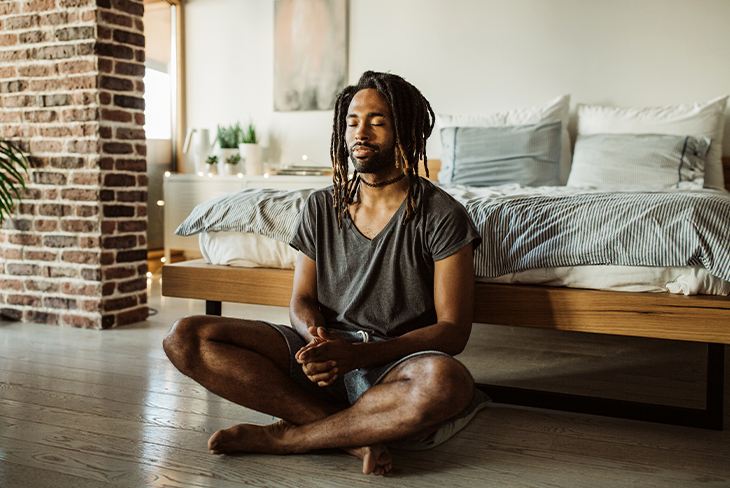Living with mental illness during a pandemic

People around the world have been challenged by the coronavirus pandemic, but for those already struggling with a mental health condition, life has become particularly difficult. These simple strategies may help.
The statistics say it all: according to the Centers for Disease Control and Prevention, in the latter part of June 2020, 40% of adults in the United States admitted to struggling with mental health or substance abuse. Here at home, one in four adults surveyed in a study conducted by the University of the Witwatersrand said they had anxiety and fears around infection, and were ‘thinking too much’.
Presumably, these are people who do not already have the burden of managing the symptoms associated with obsessive-compulsive disorder (OCD), anxiety, depression and bipolar mood disorder. But for those who do, the pandemic adds even more pressure.
Dr Imthiaz Hoosen, a psychiatrist at Life Vincent Pallotti Hospital in Cape Town, says that while the pandemic has been traumatic for all, those dealing with mental illness are even more vulnerable to the stressors a highly infectious virus like COVID-19 presents. But, he adds, the following steps may help to contain the feelings of helplessness, compulsions and loss of control that exacerbate symptoms.
1. Guard against overthinking
It’s easy to become preoccupied with possible future scenarios, like what may happen if you contract the disease or lose someone you love. Dr Hoosen says that even though these obsessive thoughts and fears may be irrational, it’s difficult to stop them from spiralling out of control, which is why you need to focus on the things that you can influence.
‘There is no way of knowing what is going to happen next year, and even if we did know, our own actions would have little impact. It’s this feeling of disempowerment that causes anxiety, especially for people who are already prone to the condition,’ he points out. Bringing your attention to what is happening within your own domain rather than what’s ‘out there’ may help you realise you are not, in fact, without power – so think about wearing your own mask, for example, rather than worrying that other people aren’t wearing theirs.
2. Be mindful
Mindfulness is a particularly useful technique for dealing with depression and anxiety because it brings your mind back to the present moment. So, says Dr Hoosen, when your mind feels as though it is running away from you, bring your attention to the concrete facts of your existence in this moment – for instance, you’re in your office, looking at your desk, touching the keys on your laptop.
3. Embrace routine
One of the reasons people have struggled with lockdown is that they feel lost without their usual routines. This has especially been true for people who suddenly had to work from home and no longer had any boundaries between their personal lives and the working day. The way to address this, according to Dr Hoosen, is to create new boundaries. Set an alarm for the same time every day, set aside a dedicated working zone and pack up at the time you would usually leave work. This is important, he explains, because without clear boundaries, one area of life blurs into another and we have no balance.
4. Help others
We’ve constantly been reminded of the need for self-compassion during the pandemic, but Dr Hoosen says it’s important to balance this with helping others. Even a gesture as small as a phone call or running an errand for someone can alleviate stress. Altruistic acts can also help you focus because they mean that there is one more thing you can control.
5. Watch for triggers
If you are living with a mental illness, you are probably aware of your symptoms, which means your condition is being triggered. These may include small things such as increased irritability, changes in your eating and sleeping patterns, losing interest in your usual activities and feeling overwhelmed and struggling to cope, particularly during cycles of compulsive news watching. Thoughts of self-harm are a larger red flag.
In all cases, seek help – and remember to keep up with your medication or therapy at all times. Life Mental Health is a leading provider of private psychiatric services at nine facilities in four provinces across South Africa.
The content provided is not intended to be a substitute for professional medical advice, diagnosis or treatment and does not cover every aspect of mental health. Consult a doctor or your nearest emergency unit if you are concerned about your own or a loved one’s mental health. The information is shared on condition that readers will make their own determination, including seeking advice from a qualified healthcare professional. E&OE. Life Healthcare Group Ltd does not accept any responsibility for any loss or damage suffered by the reader as a result of the information provided.

